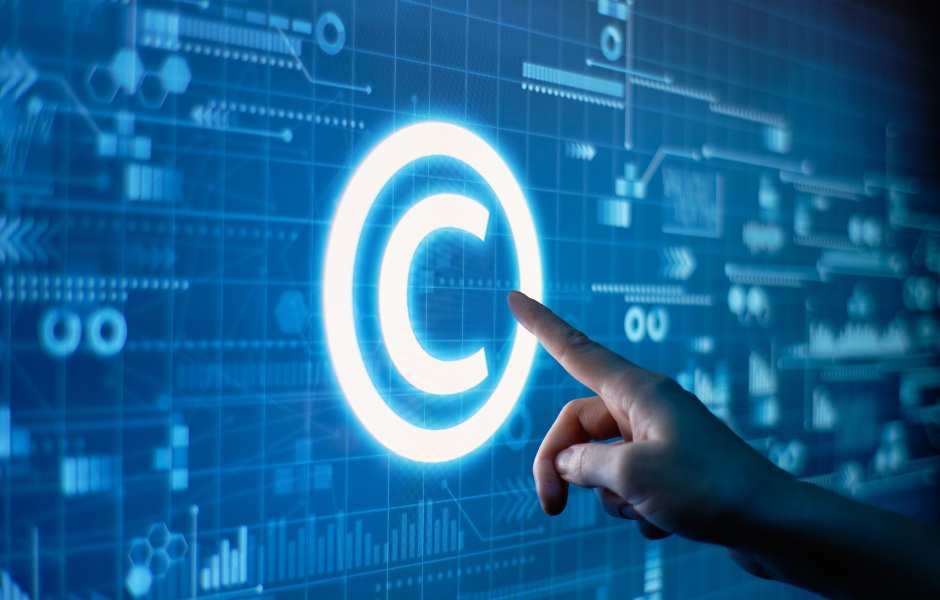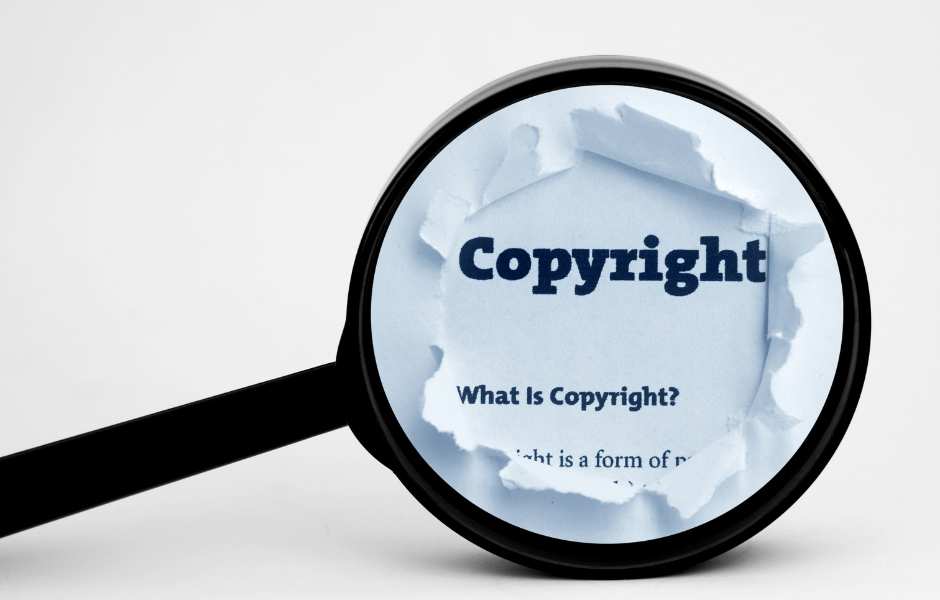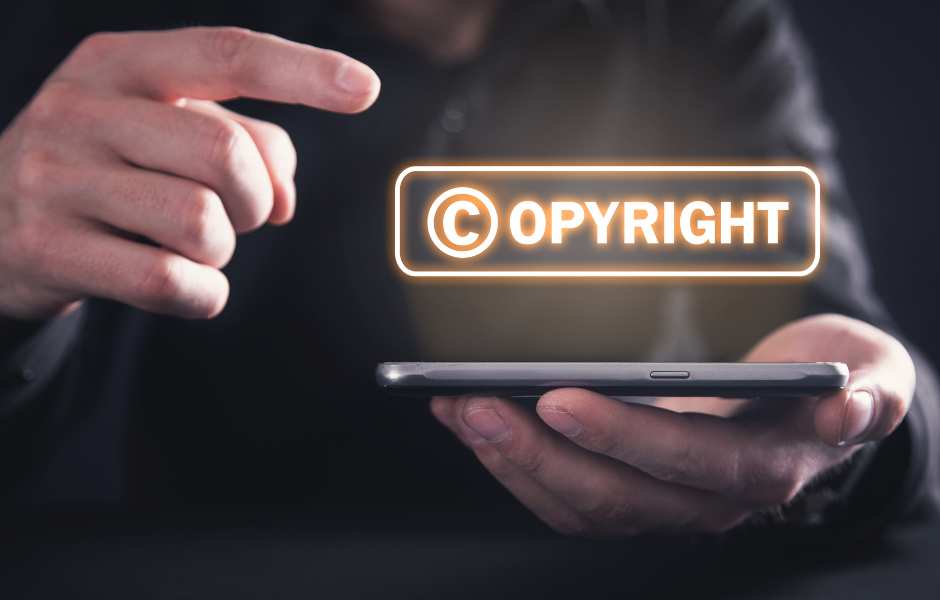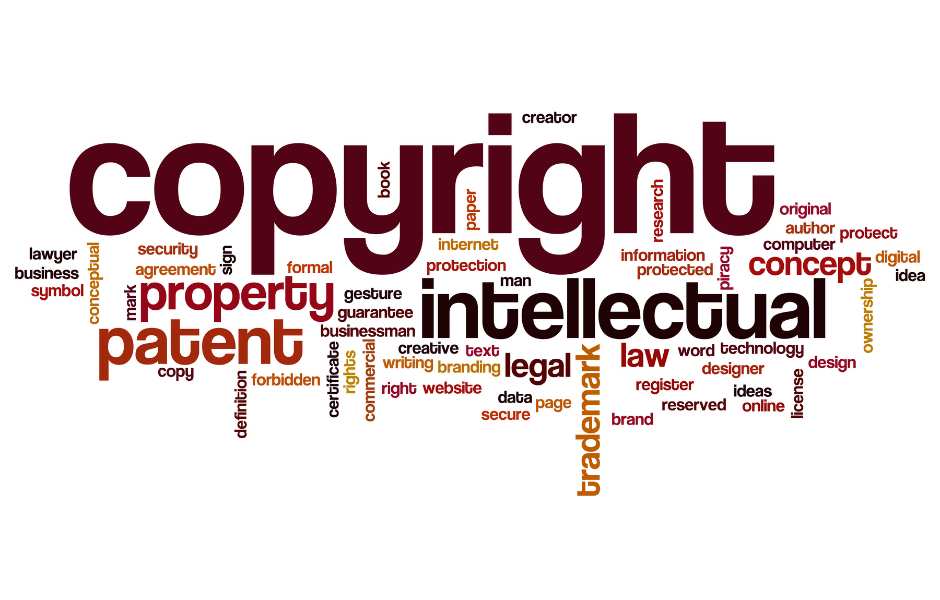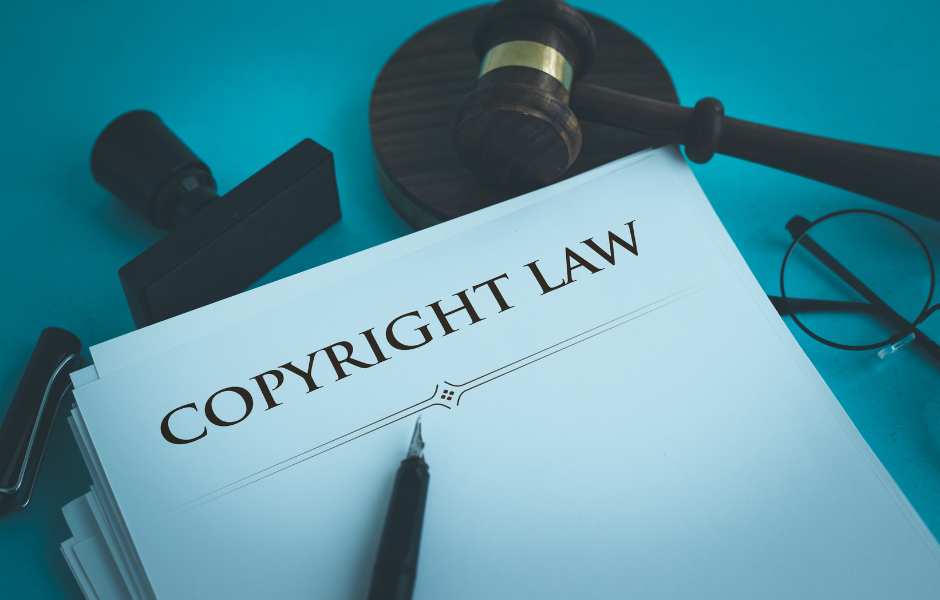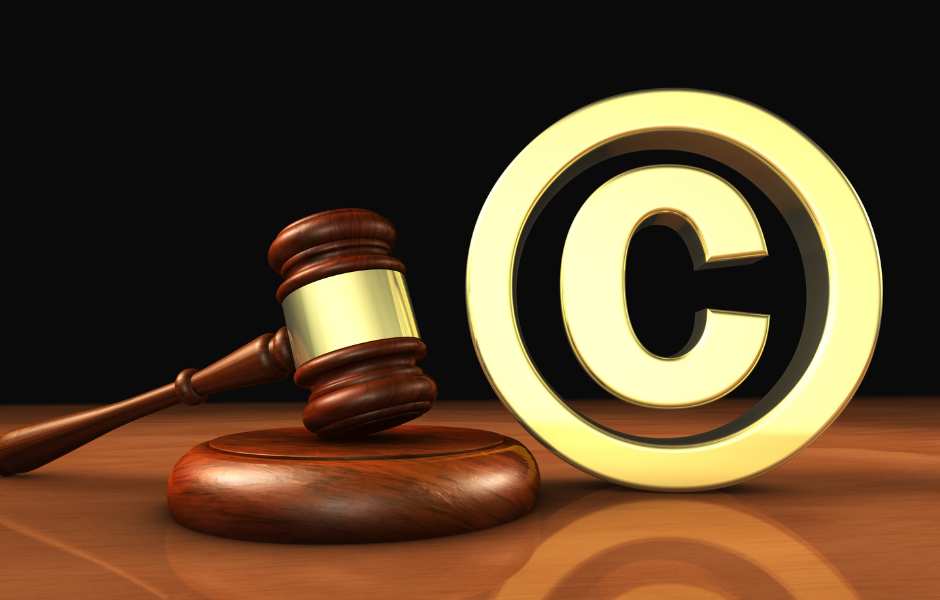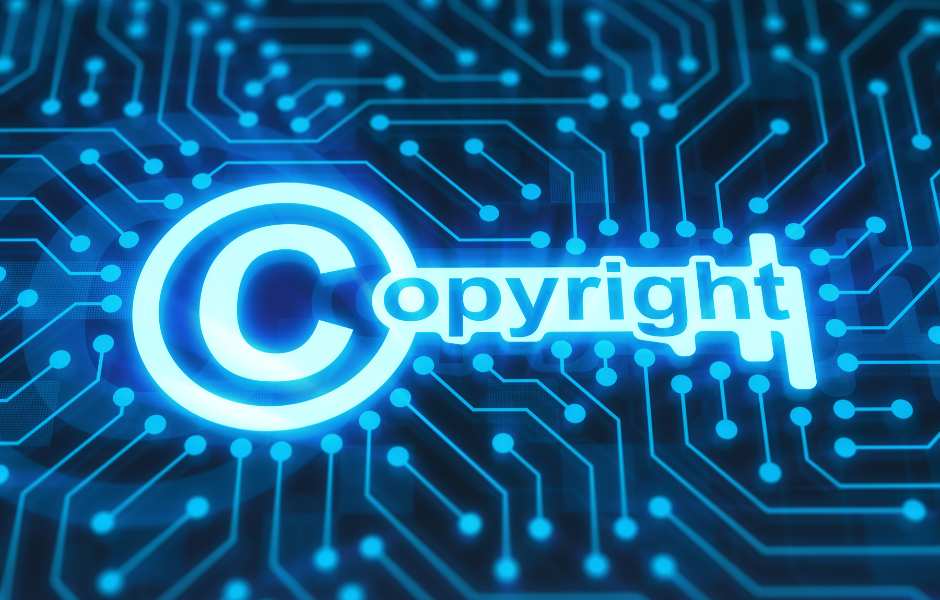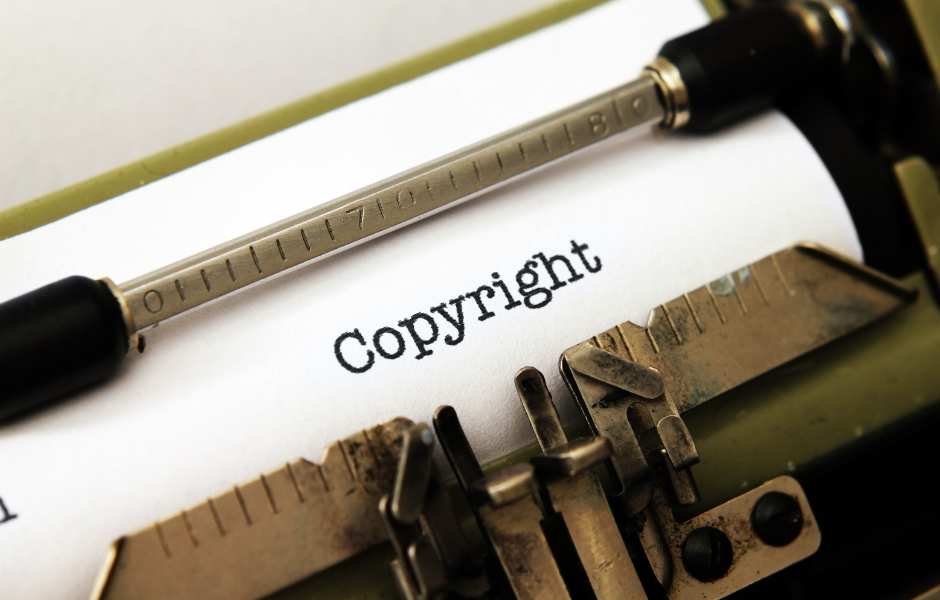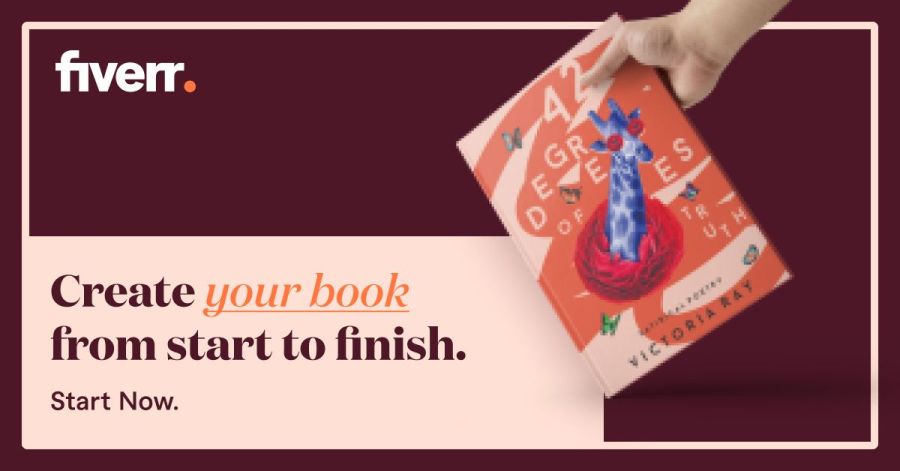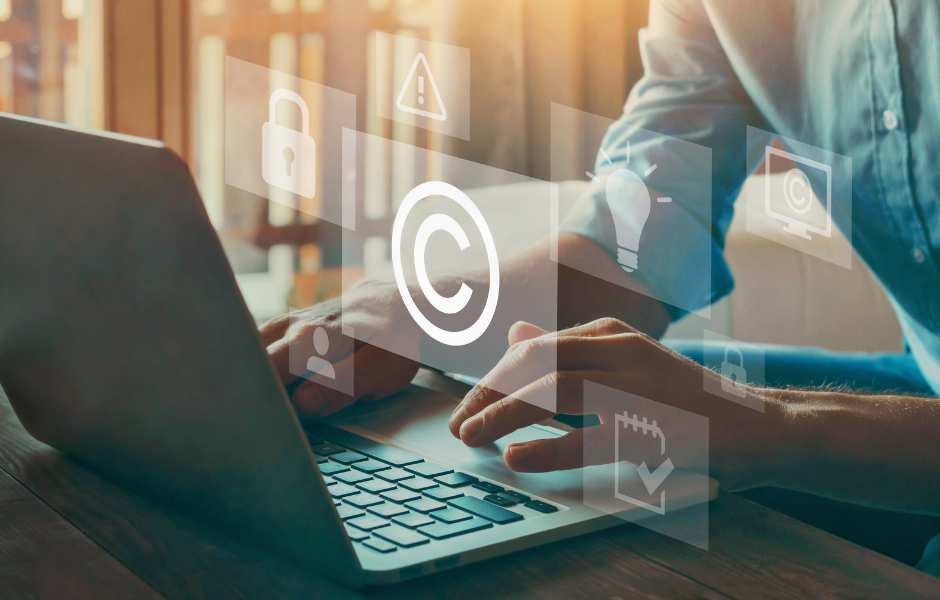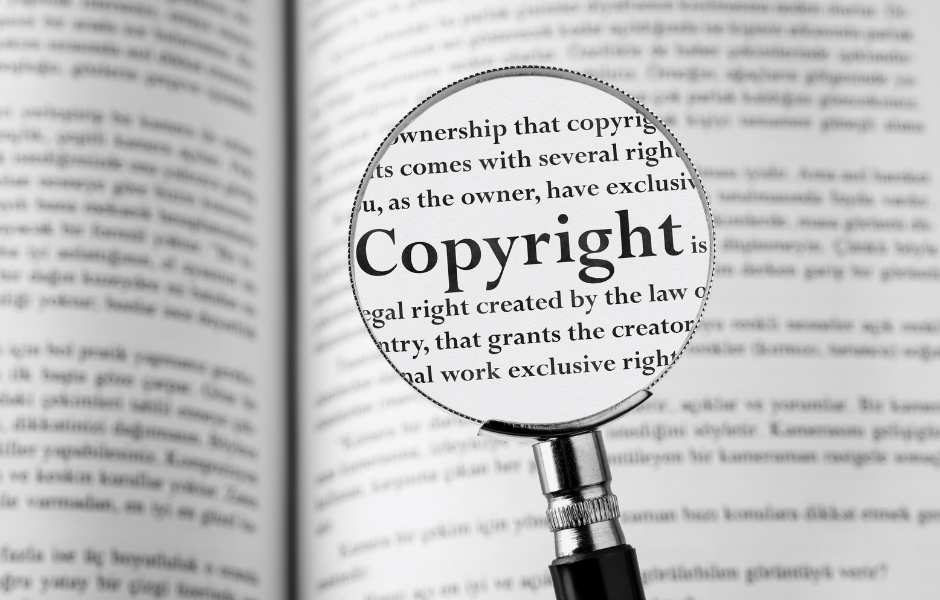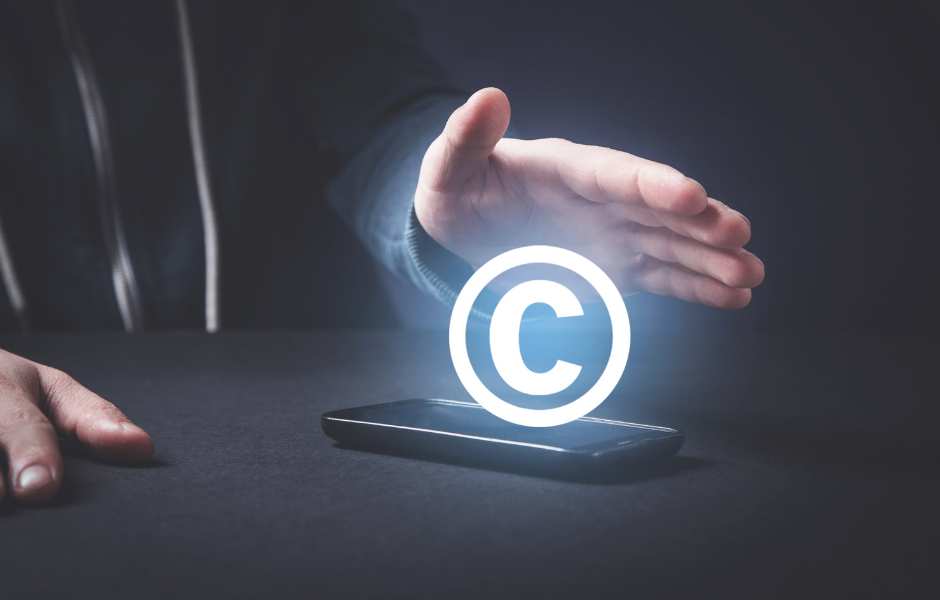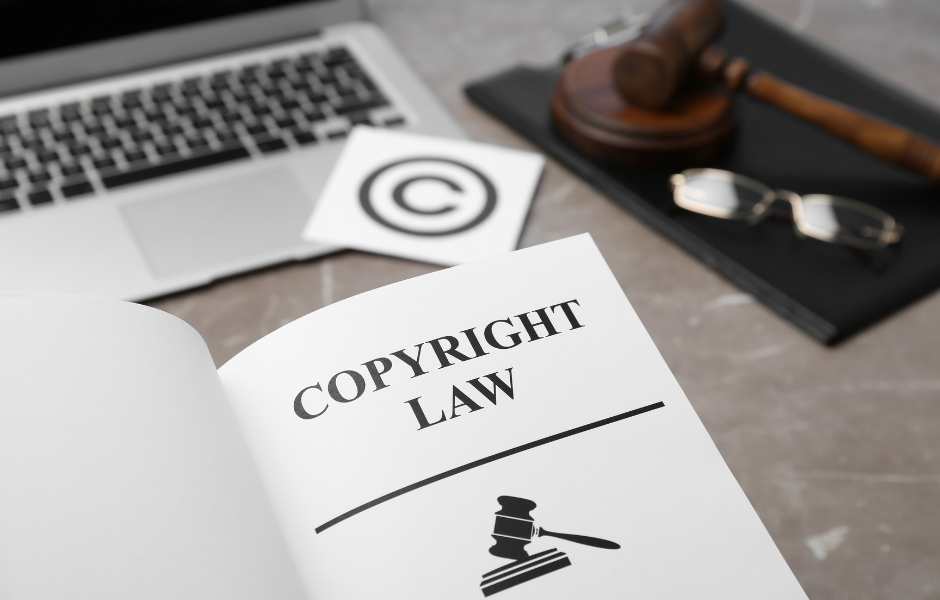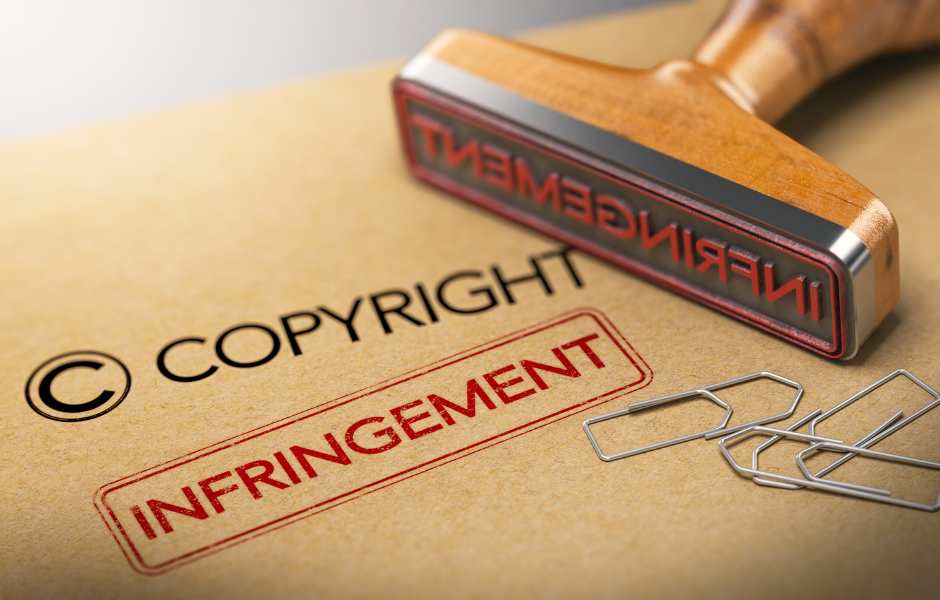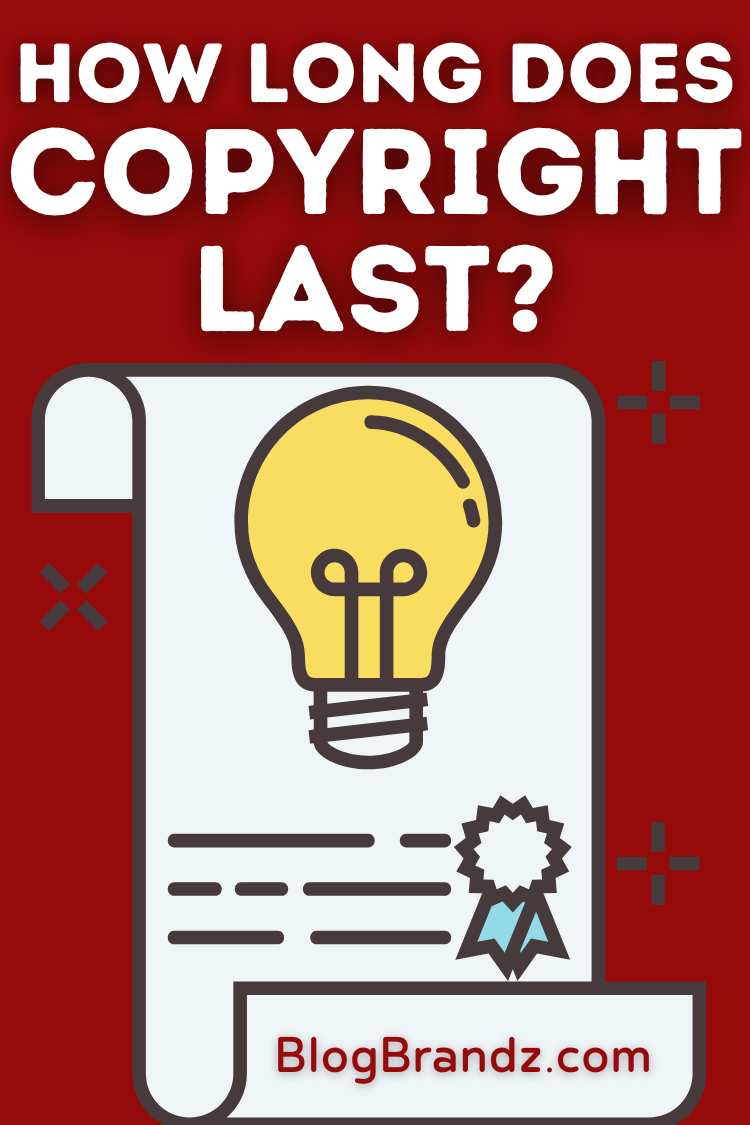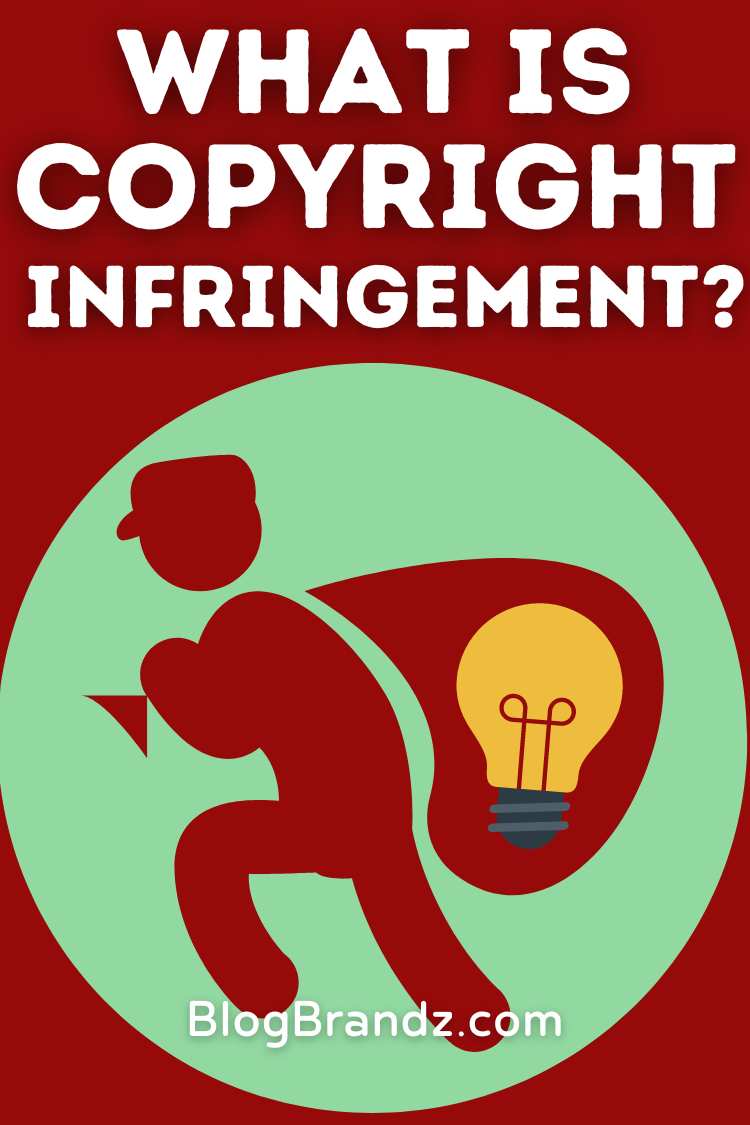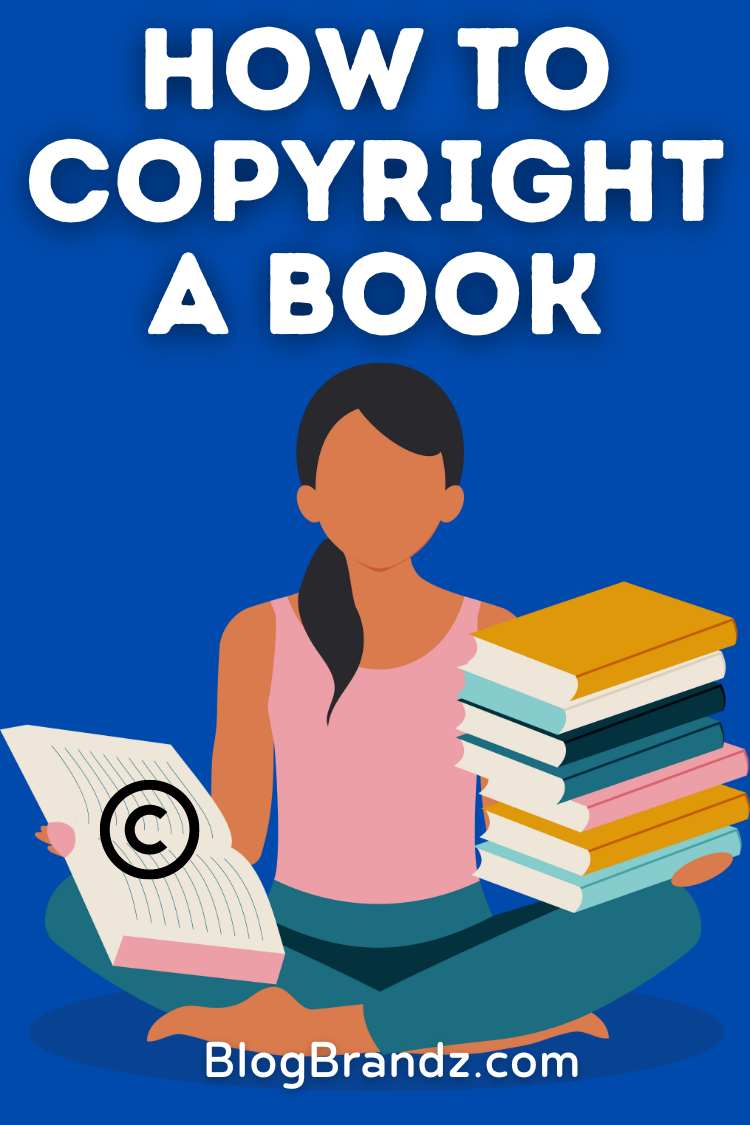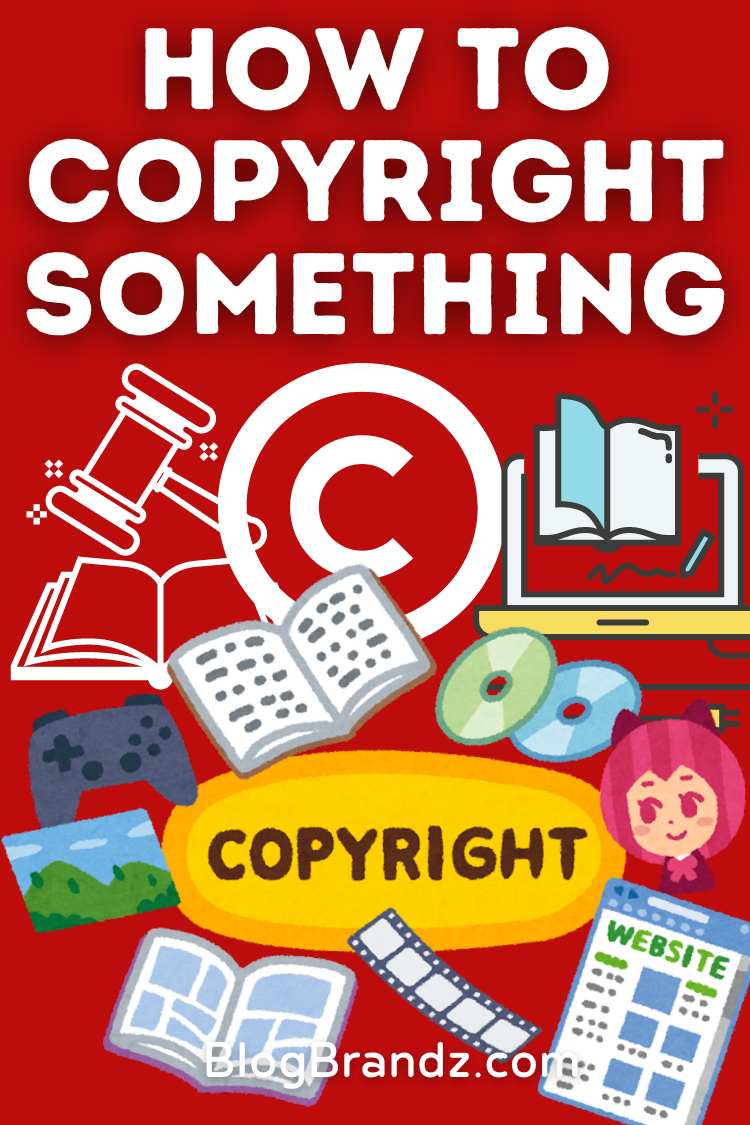What is copyright? Learn how to copyright something, prevent copyright infringement, and safeguard your rights as a writer, author, or content creator.
As a content creator, protecting your intellectual property rights is important. Copyright law plays a vital role in safeguarding the rights of creators.
Copyright laws shield creators, ensuring their works are not used or reproduced without permission. Whether you’re an artist, writer, musician, or filmmaker, your creative works are valuable assets that deserve protection.
Contents
- What Is Copyright?
- What Is a Copyright Disclaimer?
- What Is Copyright Infringement?
- How Long Does Copyright Last?
- What Is the Difference Between Trademark and Copyright?
- Understanding Copyright Laws for Writers and Authors
- What Is the Purpose of the Digital Millennium Copyright Act?
- How To Copyright Something
- How To Copyright a Book
- How To Copyright in the United States
- How To Do a Copyright Search
- How To File a Copyright Claim
- AI Copyright Considerations
- Courses on Copyright Law & Copyright Protection
What Is Copyright?
Copyright is a form of intellectual property protection granted to the creators of original works of authorship. It gives the creator the exclusive right to reproduce, distribute, perform, display, or license their work.
Copyright protection applies to various types of creative works, including literary works (such as books, articles, and poems), musical works (including compositions and lyrics), dramatic works (such as plays and screenplays), and other artistic works (such as paintings, sculptures, and photographs).
Copyright protection is automatic and begins as soon as the work is created and fixed in a tangible form, written on paper or saved in a digital file.
Registration of copyright is not required for protection but can provide additional legal benefits, such as the ability to sue for statutory damages and attorney’s fees in case of infringement.
What Is a Copyright Disclaimer?
A copyright disclaimer is a statement intended to limit the liability of the copyright owner for the use of their copyrighted material. It is typically used to inform others of the copyright owner’s rights and assert that the use of the copyrighted material is not authorized.
Copyright disclaimers may include statements such as “All rights reserved,” “Unauthorized copying is prohibited,” or “This material may not be reproduced without permission.”
They are often found in books, websites, videos, and other works to notify users of the copyright owner’s rights and to deter unauthorized use of the material. However, it’s important to note that a copyright disclaimer alone does not prevent infringement or provide legal protection.
What Is Copyright Infringement?
Copyright infringement is the unauthorized use of copyrighted material in a manner that violates the copyright owner’s exclusive rights, such as the right to reproduce, distribute, display, or perform the copyrighted work.
Infringement occurs when someone uses all or a substantial part of a copyrighted work without permission, and such use is not considered fair use.
Copyright infringement can occur in various forms, including copying, distributing, performing, or displaying copyrighted material without authorization.
How Long Does Copyright Last?
How long does a copyright last? The duration of copyright protection varies depending on several factors, including the country where the work was created or published, the type of work, and when it was created or published.
In general, copyright protection lasts for the author’s lifetime plus a certain number of years after the author’s death. After the copyright expires, the work enters the public domain and can be used by anyone for any purpose.
In the United States, for works created on or after January 1, 1978, copyright protection lasts for the life of the author plus 70 years. For works created by a corporate author or anonymously, the duration is 95 years from the date of publication or 120 years from the date of creation, whichever is shorter.
Copyright laws and duration can vary by country, so check the specific laws in your jurisdiction.
What Is the Difference Between Trademark and Copyright?
What is the difference between copyright and trademark? Copyright and trademark are two distinct forms of intellectual property protection that serve different purposes:
Copyright:
Copyright protects original works of authorship fixed in a tangible medium of expression. This includes literary works, music, movies, and other creative works. Copyright gives the creator the exclusive right to reproduce, distribute, perform, display, or license their work.
Copyright protection is automatic and generally lasts for the author’s life plus 70 years. Registration is not required for copyright protection, but it provides additional legal benefits.
Trademark:
A trademark is a word, phrase, symbol, or design that identifies and distinguishes the source of goods or services. Trademarks can include brand names, logos, and slogans. Trademark protection prevents others from using a similar mark that could confuse consumers.
Trademark rights can be acquired through registration with the relevant trademark office, or through the use of the mark in commerce. Trademark protection can last indefinitely as long as the mark is used and properly maintained.
Copyright protects creative works, while trademarks protect brands and their associated goods or services. Copyright is automatic and applies to original works of authorship, while trademarks must be registered or used in commerce to establish rights.
Understanding Copyright Laws for Writers and Authors
For writers and authors, understanding copyright laws is crucial to protect their creative works. Some important copyright laws and principles that writers and authors should be aware of include:
Copyright Protection:
Copyright protection exists automatically once a work is created and fixed in a tangible form, such as written on paper or saved in a digital file. Registration is not required for copyright protection, but it is recommended for additional legal benefits.
Rights of the Copyright Holder:
The copyright holder has the exclusive right to reproduce, distribute, perform, and display the copyrighted work to create derivative works based on the original.
Fair Use:
Fair use is a doctrine that allows limited use of copyrighted material without permission for purposes such as criticism, comment, news reporting, teaching, scholarship, or research.
Determining fair use involves considering factors such as the purpose of the use, the nature of the copyrighted work, the amount used, and the effect on the market for the original work.
Public Domain:
Works that are in the public domain are not protected by copyright and can be used by anyone for any purpose. Works typically enter the public domain when the copyright expires, the copyright is not renewed, or the work is dedicated to the public domain by the copyright holder.
Copyright Duration:
The duration of copyright protection varies depending on the country and the type of work. In many countries, copyright protection lasts for the life of the author plus a certain number of years after the author’s death.
Moral Rights:
Some countries recognize moral rights, which are non-economic rights that protect the integrity of the author’s work and the author’s right to be identified as the creator of the work.
Digital Rights Management (DRM):
DRM refers to technologies and methods used by copyright holders to control access to and use of digital content. It is used to prevent unauthorized copying and distribution of digital works.
International Copyright Treaties:
Countries often adhere to international copyright treaties, such as the Berne Convention, which establish minimum standards for copyright protection among member countries.
Writers, authors, artists, and creative people should become familiar with these laws and principles to protect their works and understand their rights as creators.
Consulting with a copyright lawyer specializing in intellectual property law can provide further guidance on copyright issues.
What Is the Purpose of the Digital Millennium Copyright Act?
The Digital Millennium Copyright Act (DMCA) is a United States copyright law that criminalizes the production and dissemination of technology, devices, or services intended to circumvent measures that control access to copyrighted works.
It also criminalizes the act of circumventing access control, even when there is no infringement of copyright itself. The DMCA has several key provisions:
Anti-Circumvention Provisions:
It prohibits the circumvention of technological measures used by copyright owners to protect their works. This includes measures such as encryption and digital rights management (DRM).
Safe Harbor Provisions:
The DMCA provides safe harbor to online service providers (OSPs) against copyright infringement liability for the actions of their users, under certain conditions.
OSPs must designate an agent to receive notifications of claimed infringement and must promptly remove or disable access to infringing material upon notification.
Notice-and-Takedown Procedure:
The DMCA establishes a notice-and-takedown procedure that copyright owners can use to request the removal of infringing material from online platforms. OSPs must respond promptly to valid takedown notices to maintain their safe harbor protection.
Online Copyright Infringement Liability Limitation:
The DMCA limits the liability of OSPs for copyright infringement by their users, provided they meet certain requirements, such as implementing a policy to terminate repeat infringers. The DMCA applies in the United States and has significantly impacted copyright law in the digital environment.
Many other countries have enacted similar legislation or have provisions in their copyright laws that address issues related to digital copyright infringement and online service provider liability.
How To Copyright Something
The process of copyright registration can vary slightly depending on the country. In general, to copyright your work, you need to follow these steps:
- Create the Work: Write or create the content that you want to copyright. Your work must be original and fixed in a tangible form, such as written on paper, saved in a digital file, or recorded.
- Understand Copyright Law: Familiarize yourself with copyright laws in your country to understand your rights as the creator and the process of copyright registration.
- Copyright Protection: Copyright protection exists automatically once your work is created and fixed in a tangible form. Registration is not required for copyright protection, but it provides additional legal benefits.
- Registration (Optional but Recommended): To register your copyright, you can typically complete an application form provided by the relevant copyright office (e.g., the U.S. Copyright Office). The form will ask for information about the work and the author and may require a fee.
- Deposit Copies: Depending on the copyright office’s requirements, you may need to submit copies of your work along with your application. This is usually done digitally or by mail.
- Wait for Processing: After submitting your application, you’ll need to wait for the copyright office to process your registration. This can take several months, so be patient.
- Receive Certificate: If your application is approved, you’ll receive a certificate of registration from the copyright office, which officially documents your copyright.
It’s important to note that copyright laws and registration processes vary by country, so it’s advisable to check the specific requirements in your jurisdiction.
While registration is not required for copyright protection, it can provide additional legal benefits, such as the ability to sue for statutory damages and attorney’s fees in case of infringement.
How To Copyright a Book
Does publishing a book on Amazon establish copyright? Publishing a book on Amazon does not establish copyright protection. Copyright protection exists automatically once a work is created and fixed in a tangible form, such as written on paper or saved in a digital file.
However, registering your copyright with the U.S. Copyright Office provides additional legal benefits, such as the ability to sue for statutory damages and attorney’s fees in case of infringement.
When you publish a book on Amazon, you retain the copyright to your work, but Amazon may have certain rights related to distribution and sales based on the agreement you enter into with them.
It’s important to read and understand the terms of the agreement to ensure you retain the rights you want for your work. To copyright a book, you need to follow these steps:
- Create the work: Write your book or create the content you want to copyright.
- Understand copyright law: Familiarize yourself with copyright laws in your country to understand your rights as the creator.
- Originality: Ensure that your work is original and not a direct copy of someone else’s work.
- Fixation: Your work must be fixed in a tangible form, such as written on paper or saved in a digital file.
- Registration (optional but recommended): While copyright protection exists automatically once your work is created and fixed in a tangible form, registering your copyright with the relevant copyright office (such as the U.S. Copyright Office) provides additional legal protections and is often recommended.
How To Copyright in the United States
To register a copyright in the United States follow the steps below:
- Complete the application: Fill out the application form on the U.S. Copyright Office website.
- Pay the fee: Pay the required fee for registering your copyright. The fee varies depending on the type of work and method of submission.
- Submit your work: Submit a copy of your work to the Copyright Office. This can usually be done online, by mail, or in person.
- Wait for processing: Once your application is submitted, you’ll need to wait for the Copyright Office to process your registration. This can take several months.
- Receive your certificate: If your application is approved, you’ll receive a certificate of registration from the Copyright Office, which officially documents your copyright.
Remember, copyright laws vary by country, so it’s important to research the specific requirements and processes in your jurisdiction.
How To Do a Copyright Search
To perform a copyright search (also called a copyright check or copyright lookup), you can follow these steps:
- Identify the Work: Determine the work you want to conduct a copyright check. This could be a book, song, artwork, or other creative work.
- Search Online Databases: Search online copyright databases to see if the work is already registered. In the United States, you can use the Copyright Office’s online search tool to search for registered works. Other countries may have similar online databases for copyright registration.
- Check Public Records: Some countries may also have public records or databases where you can search for copyright registrations. Check with the relevant copyright office or government agency in your country for more information.
- Use Copyright Symbol: Look for the copyright symbol (©), the word “Copyright,” or the abbreviation “Copr.” followed by the copyright owner’s name and the year of first publication. This information can help you identify if the work is protected by copyright.
- Contact the Copyright Owner: If you can’t find information about the copyright status of a work through online databases or public records, you may consider contacting the copyright owner directly. The copyright owner’s contact information may be listed on the work or their official website.
- Consult Legal Advice: If you’re unsure about the copyright status of a work or need legal advice regarding copyright, it’s advisable to consult with a qualified copyright attorney.
It’s important to note that copyright registration is not required for copyright protection to exist. However, registration can provide additional legal benefits and may be necessary if you plan to enforce your copyright in court.
How To File a Copyright Claim
To file a copyright claim, follow these general steps:
- Gather Documentation: Collect evidence that proves you own the copyright to the work. This may include the original work, registration certificate (if registered), and any relevant correspondence or agreements.
- Identify the Infringement: Identify the material or work being infringed upon, including where it is being used and by whom.
- Contact the Infringer: Send a formal notice to the person or entity using your copyrighted material without permission. This notice should include a description of the copyrighted work, a statement of your ownership of the copyright, and a request to ‘cease and desist’ from the infringing activity.
- Consider Legal Action: If the infringer does not respond to your notice or refuses to stop using your copyrighted material, you may consider taking legal action. This may involve filing a lawsuit in court to enforce your copyright and seek damages for the infringement.
- Consult an Attorney: Copyright law can be complex, so consult with a copyright attorney specializing in intellectual property law. They can help you understand your rights, assess the strength of your claim, and guide you through the legal process if necessary.
It’s important to note that copyright laws vary by country, so the specific requirements and procedures for filing a copyright claim may differ depending on your location.
AI Copyright Considerations
AI copyright raises several complex considerations due to the unique nature of AI-generated works. Some key considerations include:
Authorship:
Determining authorship of AI-generated works is challenging. Traditional copyright law attributes authorship to human creators, but AI can create works without direct human involvement.
This raises questions about whether AI can be considered an author and, if so, who owns the copyright in AI-generated works.
Ownership:
Ownership of AI-generated works is another issue. In many jurisdictions, copyright is granted to the creator of the work, but if AI is considered the creator, the question arises of who owns the AI and, therefore, the copyright in its creations.
Originality:
Copyright law typically requires works to be original to receive protection. AI-generated works may be based on existing data or patterns, raising questions about the originality of such works and their eligibility for copyright protection.
Duration:
Copyright duration varies by jurisdiction, but in general, it lasts for the life of the author plus a certain number of years. Since AI does not have a life span, determining the duration of copyright in AI-generated works is unclear.
Fair Use and Fair Dealing:
The use of AI in creating works may impact the application of fair use (in the US) or fair dealing (in other countries) exceptions to copyright. Questions arise about whether the use of copyrighted material by AI constitutes fair use or fair dealing.
Liability:
Liability for copyright infringement involving AI-generated works is another consideration. If AI creates a work that infringes on someone else’s copyright, who is liable for the infringement: the AI developer, the user of the AI, or the AI itself?
Regulatory Framework:
Finally, there is a need to develop a regulatory framework that addresses the unique challenges posed by AI-generated works, including issues related to ownership, liability, and enforcement of copyright law.
These considerations highlight the need for ongoing discussion and development of laws and policies to address the complexities of AI copyright.
Navigating the complexities of copyright law can be challenging, and hiring a copyright lawyer can provide you with the expertise and guidance you need to navigate copyright law effectively.
From filing copyright claims to enforcing your rights, a copyright attorney can be invaluable in protecting your creations and ensuring you receive the recognition and compensation you deserve.
Courses on Copyright Law & Copyright Protection
- Certificate Course in Intellectual Property Rights (IPR)
- Series #2. Copyright and the Copyright Law
- Patent, Trademark, Copyright Law Basics for Creative People
- Copyright Basics: How to Protect Your Work from Piracy
- Copyright Myths: Public Domain, Fair Use, Creative Commons
- Copyright Protection for Entrepreneurs (Protect Your Work)
- Protect Your Creative Works with US Copyright Registration
- Intellectual Property Security Awareness for Social Media
- Complete Course on How to Copyright Graphic Designs
- Photography & Copyright: Complete Guide for Photographers
- Copyright Registration for Songs & Music Albums
- Indian Copyright Regime: Law and Practice
- Intellectual Property Rights (IPR) Primer
Legal Disclaimer:
The author of this article is not a lawyer and does not provide legal advice. The information provided in this article is intended for general informational purposes only and should not be construed as legal advice on any subject matter.
The content of this article may not reflect current legal developments, verdicts, or settlements. The reader should not act or refrain from acting based on any information contained in this article without seeking legal advice from an attorney licensed in their jurisdiction.
The author expressly disclaims all liability concerning actions taken or not taken based on any or all of the contents of this article. The mention of specific products, services, or other information in this article is for informational purposes only.
© 2024, Priya Florence Shah. All rights reserved.
Priya Florence Shah is a bestselling author and an award-winning blogger. Check out Devi2Diva, her book on emotional self-care for women. In her spare time, Priya writes science-fiction novels and poetry and chills with her two-legged and four-legged kids.
Discover more from Business & Branding Tips
Subscribe to get the latest posts sent to your email.
